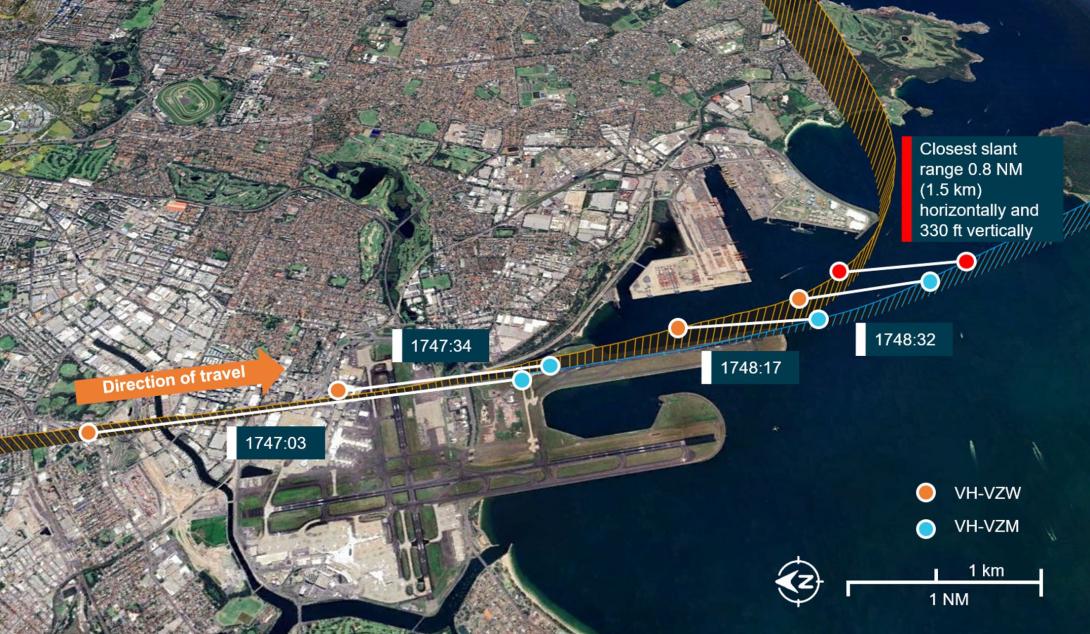
Several safety actions been made or are planned in response to a close proximity event between two 737 aircraft at Sydney Airport last year, an Australian Transport Safety Bureau final report details.
On 29 April 2023, a Qantas-operated Boeing 737 was lined up to take off from Sydney’s runway 16L, while a second Qantas 737 was on approach to land on the same runway.
Shortly after the first aircraft began its take-off roll, the aerodrome controller in the Sydney Airport air traffic control tower identified that the second aircraft was too close behind for runway separation to be assured.
After being delayed by about 12 seconds due to an inadvertent interjection by the tower shift manager, the controller instructed the second aircraft to go-around, while the first continued its take-off.
Shortly after the go-around, the controller then instructed the second aircraft to turn left after reaching 2,100 ft altitude.
“The flight crew of the second aircraft, at this time of high workload, misinterpreted this instruction as overriding the published missed approach procedure, which calls for a left turn at 600 ft,” ATSB Director Transport Safety Dr Stuart Godley said.
Due to misinterpreting the controller’s instruction, the crew of the second aircraft maintained the runway heading as they climbed through 600 ft and, as the two aircraft climbed away from the runway, separation reduced to a minimum of 1.5 km laterally and 330 ft vertically.
The controller had both aircraft in sight throughout the occurrence, and the ATSB assessed that adequate visual separation had been maintained.
In response to the incident, the air traffic services provider, Airservices Australia, advised the ATSB that it had undertaken, and would undertake, a range of safety actions.
“These include a detailed analysis of landing runway occupancy times at Sydney, and possibly other major airports, to determine expected runway occupancy times for different types of aircraft and conditions,” Dr Godley noted.
Further actions, detailed in the final report, include adding defensive controlling techniques and minimum assignable altitudes for go-around scenarios, conducting an assurance review of go-arounds at Sydney involving a second aircraft requiring controller intervention, and adding night-time go-around scenarios to compromised separation training.
“In complex airspace settings, it is inevitable errors will sometimes be made by controllers and pilots alike,” Dr Godley said.
“Consequently, the system within which these activities take place should be designed to be resilient to error and to reduce the impact that individual actions can have on the overall safety of operations.”
Read the final report: Separation occurrence involving Boeing 737, VH-VZM, and Boeing 737, VH-VZW, near Sydney Airport, NSW on 29 April 2023


